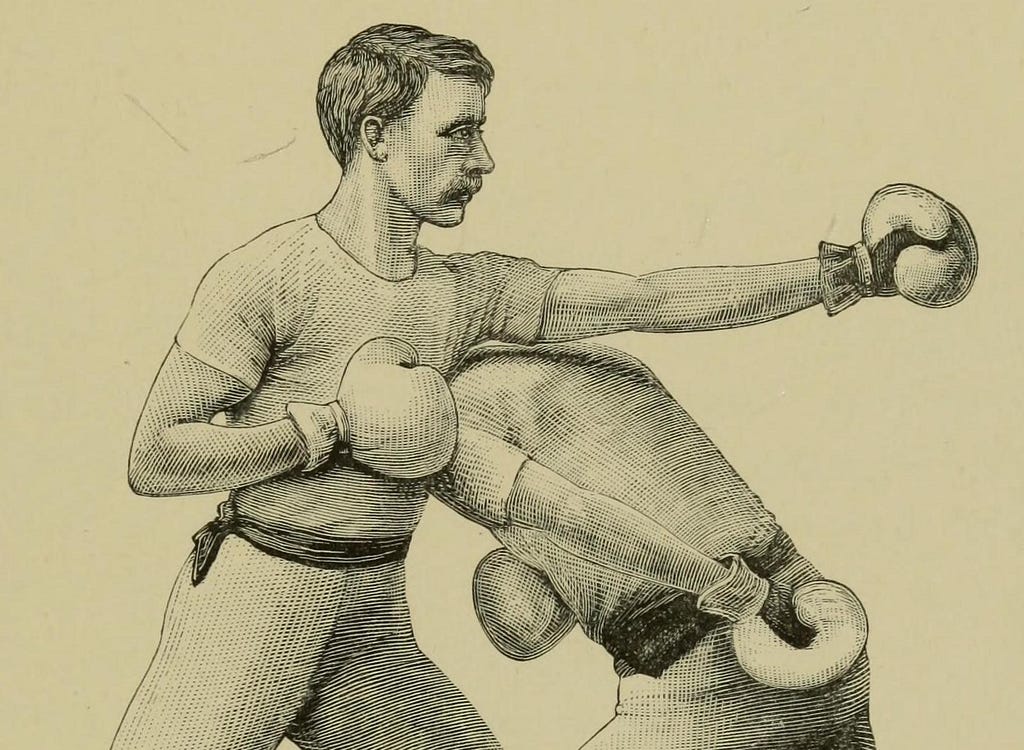Advice on adding conflict to your fiction from The Blunt Instrument
Dear Blunt Instrument,
I am a short story writer and need your blunt advice on how to build up conflict in a short story.
FA
Note: This month, the Blunt Instrument welcomes a guest columnist, the novelist, essayist, editor, and instructor John Cotter, to answer a fiction question.
Here’s my advice: Write about people you’d want to spend time reading about. Now give them a problem: They need X, where can they get it? They try like crazy. The Big Bad (their ex, or late capitalism, or getting their strength back after a bad course of luck) is creative and multifarious. The Big Bad is a spider and his web “has a thousand radiations, and he knows well every quiver of each of them.” But it’s not just the Big Bad, it’s them, your protagonist, who are themselves conflicted in defeat. Maybe X is a mistake, they wonder, as X seems so far away, and Y is what they wanted all along? Y might be easier, and Y just walked into the bar with an ass you could bounce a dime off. But the next morning everything is clear again, and even though it’s harder to get X than ever (they wasted time on a dalliance, showing something both good and bad about themselves in the course of it, as don’t we all?) they’re more determined. X will be theirs! But it won’t. X itself defeats them. And we love them by now, so we stay with them to see how they’ll recover. But wait…
Networking Advice for the Antisocial Writer
In “Special Economics,” from her 2011 collection After the Apocalypse, Maureen McHugh writes a story where the antagonist, the Big Bad, couldn’t possibly be Trouble Finding Work because the economy in Shenzhen is cherry: “Everybody knew you could get a job in no time in Shenzhen. Jobs everywhere.”
Nineteen-year-old Jieling — who interests us, because when we meet her she’s hustling in a trash market, busking a not-great hip-hop routine; she’s just come to the city from the North and she’s alive but at sea — needs a job pretty bad. An ad blares “ONE MONTH BONUS PAY! BEST JOBS!” But the reader figures they know the world better than Jieling does and worries she’ll be conned. The work, light lab stuff, isn’t hard, but she lives in factory quarters and they’ve been charging her for food and rent. Her new friend Baiyue’s in the same boat. “I’m almost out of debt and when I get clear — ” Baiyue confesses — “I can quit.” That’s conflict layer one, which ratchets up when Jieling also falls into debt.
Layer two: what they’re making in that factory are biological batteries — sting ray cells altered with bacteria in a slick black box. Americans buy them because they don’t increase global warming. Jieling toys with one of the finished boxes in her room. “Can you see the cells,” she asks Baiyue.

Baiyue shook her head. “No, the feed mechanism doesn’t let you. They’re just like the ones we grow, though, only they’ve been worked on in the tissue room. They added bacteria.”
“Can it make you sick?”
“No, the bacteria can’t live in people,” Baiyue said. “Can’t live anywhere except in the box.”
This is conflict of an ethical kind, and that conflict only increases the story’s tension, due to something I hadn’t mentioned before: This is a slight-future China recently depopulated by an avian flu, in which — as happens often — a virus hopped from a bird to a human, a zoonosis. “No, the bacteria can’t live in people.” What if they jump?
Level three: all the girls at the factory work in debt, to the factory, most over a year’s worth of it. If she could score a promotion, Jieling’s salary would increase, her debt limit would go up, and she could afford the really nice clothes from the factory store. If the reader is perceptive, they have long ago begun to see this as a critique of capitalism itself, its reach toward neo-feudalism, thus implicating the reader. But good fiction’s complicated: Communism, in stories from the characters’ parents, doesn’t sound great either. “What would it be like to just give up and belong to the company?”
Level four: If you run away from the factory, you’re arrested for shirking on a debt. Level five: Busking for cash, they meet a nice man who asks probing questions about their work. Is he a factory spy? No, but he’s a government spy and he’s holding a gun.
So, how does a story writer build tension? Start with questions and, every few pages, answer one of those questions, then ask a new one. A guy who looks a lot like Superman puts on a costume in Vegas and tries to talk tourists into letting their kids pose alongside him. Who is this guy? How’d he wind up in Vegas? Do I care? You do care because he’s sweet and naïve. Is he making bank? Barely, and he’s taunted by other characters in other costumes. Why doesn’t he quit? He can’t — all he moved to Vegas with was this costume. He loves being Superman. Will he make it here in Vegas? He won’t, because his money and ID and phone get stolen. By who? Some punks. What next? That’s Cari Luna’s “Superman” from Guernica.
Start with questions and, every few pages, answer one of those questions, then ask a new one.
Here’s another approach: Start telling one story — a Thanksgiving group finishes dinner by a crackling fire, having “finished off an entire chocolate pie and three bottles of wine” — then tell more stories. Ann, wife of the narrator, relates how she got lost in a snowstorm training dogs in Saskatchewan. She’s the narrator now. She and her client Gray Owl try to find their way home in the fading light when Gray Owl disappears beneath a lake. She tries to find him but it’s a new story, an enchanting one: she and Gray Owl lost in a seasonal cave beneath the ice roof of the frozen lake above. An intimacy builds up between Ann and Gray Owl, mirroring the intimacy of the dinner we started with, but preceding it in time. Will they find their way home? (We know she does, but we wonder anyway.) What will happen between them? And how does Ann wind up years later and far away? That’s Rick Bass’s “The Hermit’s Story.”
A character wants something: to get a job, to find their way home, to survive in a strange new place. They’re determined but things get complex. We worry for them, and for the writer too: Will the conflict remain fraught enough to keep us reading? Conflict isn’t easy. We read on to see.


How to Keep a Short Story Exciting was originally published in Electric Literature on Medium, where people are continuing the conversation by highlighting and responding to this story.
Source : How to Keep a Short Story Exciting












